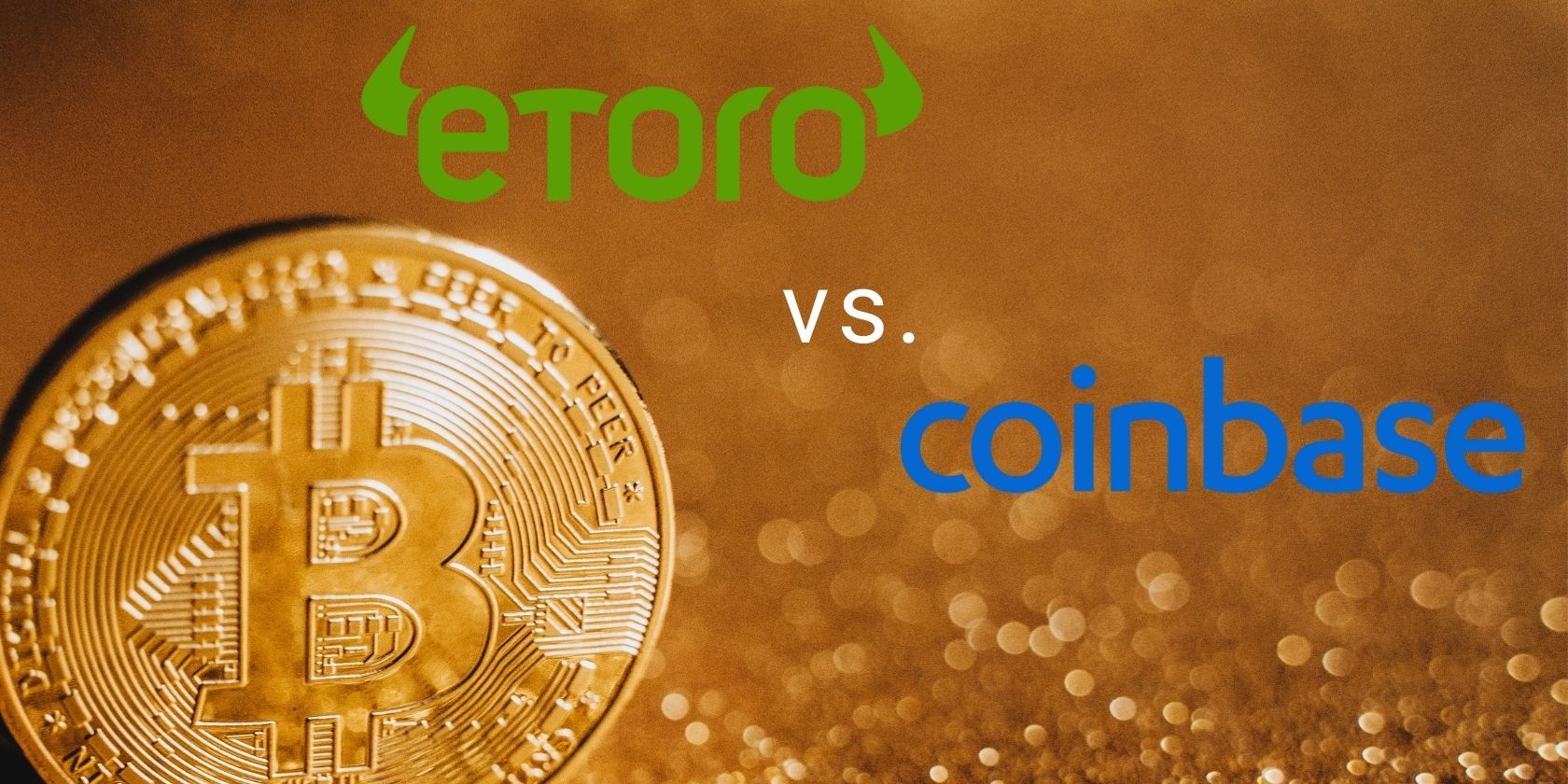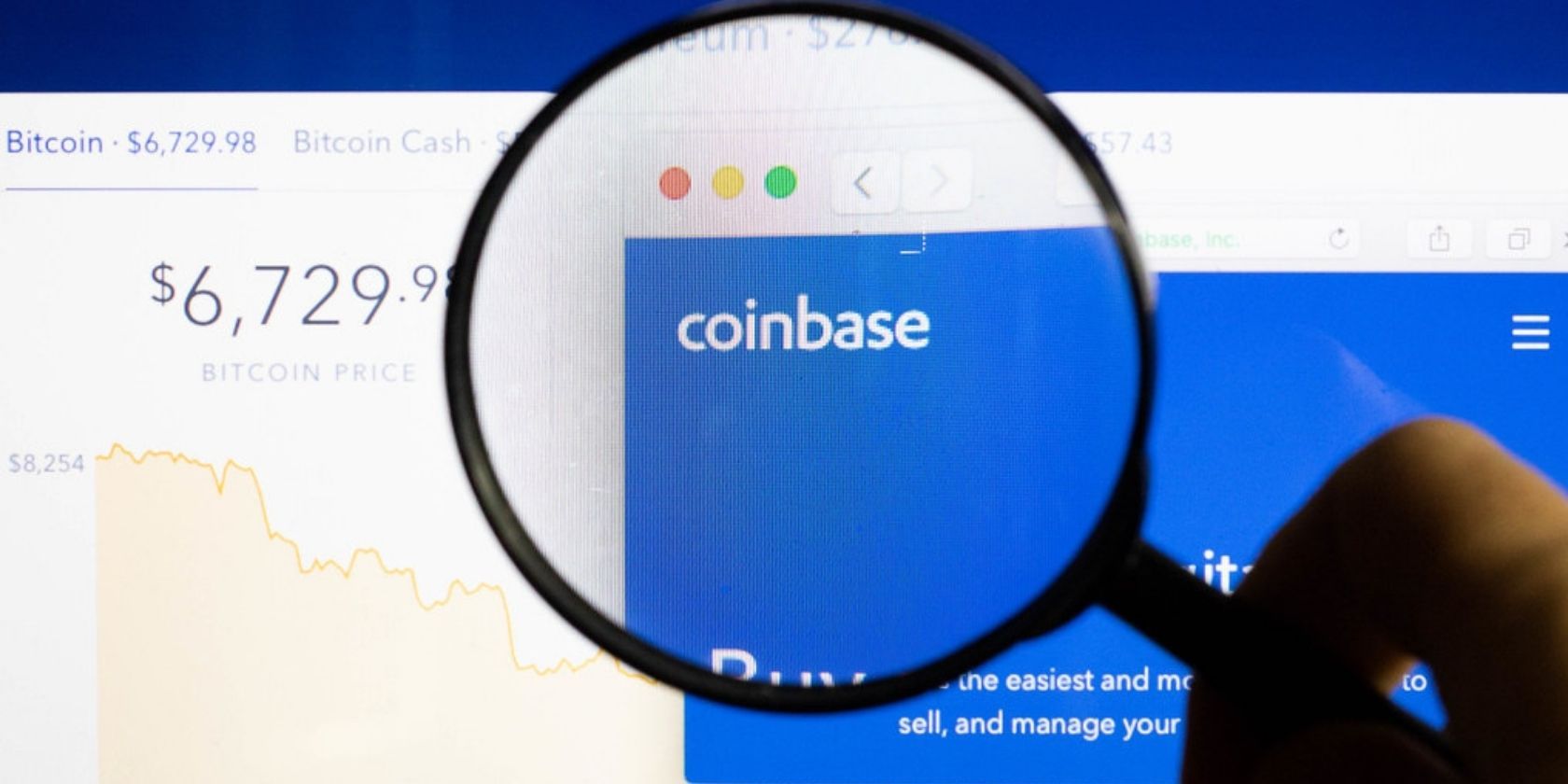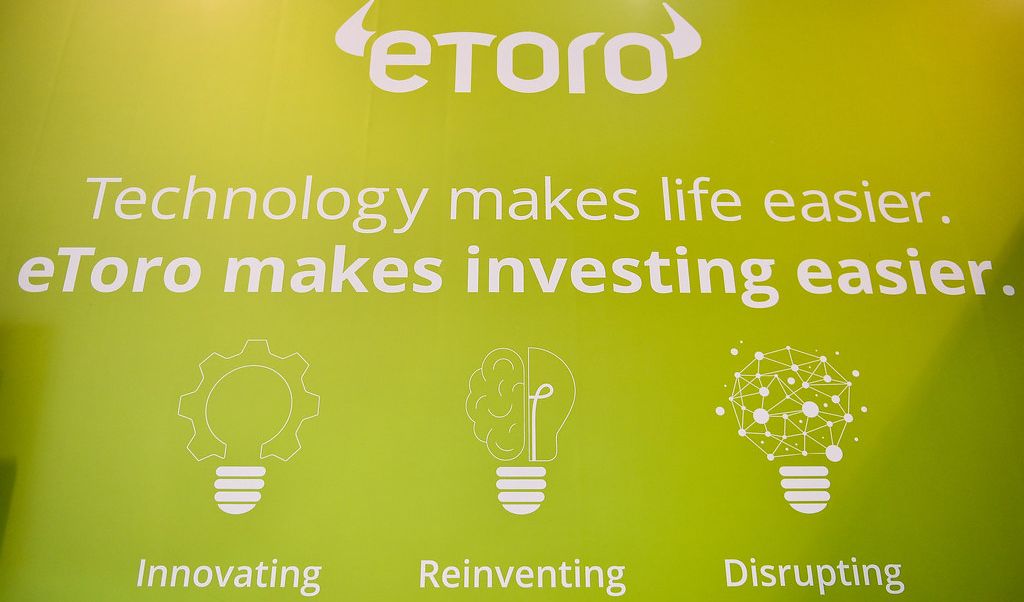Over the past few years, the increasing popularity of cryptocurrency has paved the way to a multi-trillion-dollar industry. Because of this, there is now a wide range of platforms you can use to buy, sell, and store your cryptocurrency. Two top-rated cryptocurrency exchanges are Coinbase and eToro. But which of these should you choose when purchasing crypto?
Here, we'll be going over the pros and cons of both platforms so that you can decide which is best for you. Let's start with the crypto exchange that came first: Coinbase.
What Is Coinbase?
Coinbase was initially founded in June 2012 by Brian Armstrong, a former Airbnb engineer. Armstrong teamed up with Fred Ehrsam, a former Goldman Sachs trader, in his venture to make Coinbase a success. The platform began as a service that allowed Bitcoin purchases to take place via bank transfer but has since grown and developed into the most popular decentralized exchange in the United States.
Coinbase is available in several different countries, including the US, UK, Australia, Canada, Singapore, and a range of European countries.
Coinbase supports various different cryptocurrencies, from the market's biggest names like Bitcoin and Ethereum, to stablecoins like Tether and USD Coin, and some less well-known cryptos like NuCypher and Pawtocol. With over 160 supported coins in total, you won't be short of choice when buying or selling crypto on Coinbase.
The platform is also an excellent choice for those who prioritize security above all else, and here's why.
Coinbase's Security Features
Coinbase offers a range of features that ensure your funds will remain safe and untouched by any unauthorized parties. You can use two-factor authentication to up the security of your login process and use Coinbase's Vault feature to make your crypto transactions more secure using extra verification steps.
On top of this, Coinbase works with the FDC to ensure all US wallets on the platform are insured for up to $250,000 worth of losses in the event that funds are stolen via a hack (though this insurance doesn't cover the unauthorized access of your account due to losing your login details).
Coinbase also stores over 98% of the cryptocurrency on its platform in cold storage. This means almost all of its keys are stored using physical devices that aren't connected to the internet. Without an internet connection, it's much harder for cybercriminals to steal private keys.
With all these great security features, you can rest easy knowing your precious crypto funds are as safe as possible.
There are also two versions of Coinbase that you can use depending on your experience level and requirements. You've got standard Coinbase, which most users stick to, or Coinbase Pro, a different kind of Coinbase account for those who trade very regularly and have more experience in the industry.
Coinbase Pro also offers a feature that whitelists the crypto wallet addresses in your address book to prevent your funds from going anywhere else.
Coinbase Pro offers more in-depth charting and some more advanced trading features, though you can do a lot with just a standard Coinbase account. Check out our piece on Coinbase and Coinbase Pro to determine whether you require a Pro account.
Coinbase and Coinbase Pro have different fee structures, so let's discuss how each account type will charge you.
Coinbase's Fees
A standard Coinbase account does not charge any maker fees, which makes sense, as makers are favored over takers on crypto exchanges because they supply the platform with liquidity. But a taker fee of 1.49%, along with a spread fee of 0.5% for fiat transactions and 1% for crypto transactions, still apply.
On the other hand, Coinbase Pro uses the maker-taker fee system to charge users. But there isn't one maker and one taker fee set across the board. Instead, these fees change depending on the amount of money moved in a transaction. For any transaction under $10,000, Coinbase Pro charges a 0.4% maker and 0.6% taker fee.
After this, the fees decrease with each amount bracket. Unfortunately, you'll have to conduct a transaction worth over $300 million to avoid maker fees, and taker fees are applied regardless of the amount.
Coinbase and Coinbase Pro do not charge a fee for withdrawals and deposits.
All in all, Coinbase is a secure and diverse platform suited for both crypto novices and professionals. While its fees can be a bit steep at times (especially on a standard account), the security features and large range of coins and tokens on offer make it an excellent option for all your crypto needs.
Now, let's dive into eToro and see what it can offer you.
What Is eToro?
Unlike Coinbase, eToro began as a social trading and multi-asset brokerage company for traditional currencies like the British Pound or US Dollar. The company was founded in 2007, and it wasn't until seven years later, in 2014, that eToro launched the cryptocurrency section of its exchange. But eToro's crypto exchange is only available in 45 US states, so it's considerably less accessible than Coinbase in terms of location.
If you live in New York, Nevada, Minnesota, Hawaii, or Tennessee, you will not be able to access eToro's crypto exchange.
On top of this, eToro doesn't support as many cryptocurrencies as Coinbase. Of course, Coinbase is an exchange dealing solely in cryptocurrency, while eToro made its name using traditional currencies, and its crypto exchange only came later. So, it's no surprise that eToro only supports 59 coins instead of the 160 supported by Coinbase. But eToro still supports many of the market's most popular coins.
eToroX, like Coinbase Pro, also offers a whitelisting feature to protect your crypto. So, what security features does eToro offer, and do they match up to Coinbase? Let's find out.
eToro Security Features
Like Coinbase, eToro offers two-factor authentication for the login process to minimize the chance of anyone accessing your account without your permission. Additionally, eToro holds the funds on its trading platform in cold storage, though all funds held using the eToro Money crypto wallet are held in hot storage, so keep this in mind.
Like Coinbase, eToro has two exchange versions for users depending on their experience level: eToro and eToroX. The latter supports stablecoins in its trading pairs more so than fiat currencies, and comes with a wallet supporting deposits in a total of eleven cryptos, including Bitcoin, Ethereum, Ripple, and Litecoin. The platform also supports twelve stablecoins.
Now, let's get to eToro's fee structure.
eToro's Fees
eToro's fees don't operate using a maker-taker structure. Rather, eToro charges a spread fee, which essentially makes up for the lack of maker and taker fees. Currently, eToro charges a 0.75% spread fee for cryptocurrency transactions. While this is more expensive than Coinbase Pro's fees, it's actually cheaper than the spread fee charged when using a standard Coinbase account. Additionally, eToro doesn't charge any fees for withdrawals and deposits.
Of course, if you live outside the US, eToro's cryptocurrency exchange isn't an option for you, but you can give Coinbase a try instead. However, it's certainly a solid option if you live within one of the 45 states where eToro's crypto exchange is available, and the platform supports all the coins you wish to trade in.
Below is a more concise overview of both platforms, including their fees, security features, and availability.
|
Coinbase |
eToro |
|
|
No. Supported Cryptos |
160+ |
59 |
|
Availability |
US, UK, Australia, Canada, Singapore, all European countries (excl. Bosnia and Herzegovina, Albania, Serbia, Ukraine, Montenegro, Russia, Germany, Moldova) |
45 US states (excl. Tennessee, Hawaii, New York, Nevada, Minnesota) |
|
Security Features |
Two-factor authentication, vaults, cold storage, insurance of US wallets up to $250,000, whitelisting (on Coinbase Pro) |
Two-factor authentication, cold storage of trade funds (not wallet funds), whitelisting (on eToroX) |
|
Fees |
Coinbase: 1.49% taker fee 0.5% taker fee for fiat transactions, 1% for crypto transactions Coinbase Pro: 0.5% maker fee, 0.5% taker fee |
0.75% spread fee (no maker/taker) |
Clear Winner Between the Two Crypto Exchanges
While both Coinbase and eToro have their pros and cons, Coinbase is our clear winner for buying cryptocurrency. The platform supports a huge range of cryptos, prioritizes security, and is available in many countries across the globe. In short, it is more accessible and has a richer cryptocurrency ecosystem for all your buying, selling, staking, and storing needs.



